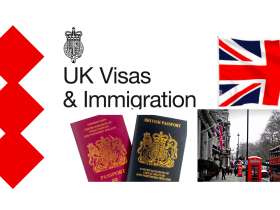Top 12 Reasons for Canadian Visa Refusals and How to Avoid Them: Canada is a popular destination for millions of visitors each year, whether for study, vacation, work, or permanent immigration. However, obtaining a Canadian visa isn’t always straightforward. Even with Canada’s welcoming nature, visa refusals are common. To improve your chances of a successful application, it’s crucial to understand the common pitfalls that lead to refusals. Let’s dive into the top reasons why Canadian visa applications are denied and how you can avoid them.
Improper and Inaccurate Supporting Documents:
Canada Visa Application: One of the most common reasons for visa refusal is the submission of improper or inaccurate documents. Each visa type has specific requirements, and failing to provide the correct documents can jeopardize your application. Whether applying for a study, vacation, or permanent immigration visa, ensure you include all necessary documents and review them meticulously. Double-checking the application checklist and seeking professional assistance can help you compile a comprehensive and accurate set of supporting documents.
Insufficient Proof of Funds:
Your financial stability is critical when applying for a Canadian visa. Lack of sufficient proof of funds can result in refusal. You need to demonstrate that you have enough money to cover your expenses during your stay. This can be done by providing recent bank statements, employment verification letters, and details of any sponsorships. Proper preparation and clear documentation in your statement of purpose can assure visa officers of your ability to support yourself while in Canada.
Also Read: Secrets to find Visa Sponsorship and Remote Jobs
Failure to Pass Background Security Checks:
A criminal conviction or unresolved debt can lead to visa denial. Transparency is key—applicants with a criminal history should disclose their legal past and submit a comprehensive criminal record check, such as a police character certificate. Seeking legal advice to address allegations of credit bureau infringements and presenting a verifiable document can significantly improve your chances of approval.
EF Global Travels, your trusted Travel Agency is available to assist you. Chat us now!
Failure to Meet Health Standards:
Health concerns can be a barrier, depending on the visa type. Applicants must provide a detailed medical history, undergo any required medical exams, and submit all necessary medical documentation. A letter from a certified healthcare professional affirming your good health can also help ease concerns. Timely completion of medical exams and thorough documentation are crucial.
Doubts About Applicant’s Intentions:
Another top reason for Canadian visa refusal is doubts about applicant’s intentions. Visa officers need to be convinced of your intentions to visit, study, or vacation in Canada. A well-documented itinerary, including reasons for your trip and plans during your stay, is essential. Supporting documents like flight reservations, hotel bookings, and a comprehensive travel plan can help dispel doubts about your sincerity.
More Read
Lack of Ties to Home Country:
Establishing strong ties to your home country is crucial for a successful visa application. This includes evidence of employment (e.g., confirmation letters, introduction letters, and pay slips), business ownership (e.g., company registration details), family dependencies, and investments such as property ownership. A compelling case that illustrates a solid connection to your home country can greatly enhance your chances of approval.
Previous Travel History:
Applicants with a history of visa refusals or overstays should address these issues directly. Provide a detailed explanation of past problems and demonstrate the corrective actions taken. Proof of compliance with visa regulations in subsequent travels and a commitment to adhering to Canadian immigration laws can mitigate concerns about your travel history.
Misrepresentation and Dishonesty:
Being dishonest or misrepresenting facts in your visa application can lead to refusal. This includes inaccuracies in your immigration, family, or work history. Avoid these issues by thoroughly understanding the application requirements and providing truthful information. Transparent communication is vital to avoiding complications related to misrepresentation.
Overstaying Status:
A history of overstaying visas can negatively impact your application. If this applies to you, demonstrate a clear commitment to following visa regulations in future travels. Providing documentation of timely departures whether for work, vacation, or other types of application and compliance with immigration laws will strengthen your application.
Illegal Status in the Country of Residence:
Establishing legal residency in your home country is essential. Before applying for a Canadian visa, resolve any issues related to illegal status. Providing proof of legal residence, such as a National Identification Number (NIN) especially for Nigerians or residency permit, is crucial to assuring Canadian authorities of your commitment to abiding by the law.
High Volume of Pending Applications:
Another reason Canadian visa application can be refused is high volume of pending applications. Sometimes, a high volume of applications can lead to stricter scrutiny. Visa officers may reject applications for minor issues if they are processing more than usual. Although there isn’t much you can do about this, ensuring your application is flawless can help it stand out, even during peak times.
Unexplained Gaps in Education or Experience:
This is especially relevant for study permit applications. Consistency in your education and work history is important. If you took a gap year or were unemployed before applying, explain the reason in your statement of purpose. Addressing any gaps transparently can prevent your application from being flagged.
Conclusion
While obtaining a Canadian visa can be challenging, understanding the common reasons for refusal can significantly improve your chances of success. Diligence, transparency, and adherence to guidelines are key. If you need assistance, consulting with experienced travel consultants like E.F Global Travels can make all the difference. We can professionally review and handle your Canadian visa application, ensuring it stands the best chance of approval.
Embark on your journey to Canada with confidence—reach out to us to discuss your plans. Our expertise will guide you through the complexities of the process, increasing the likelihood of a positive outcome.











Leave a Review